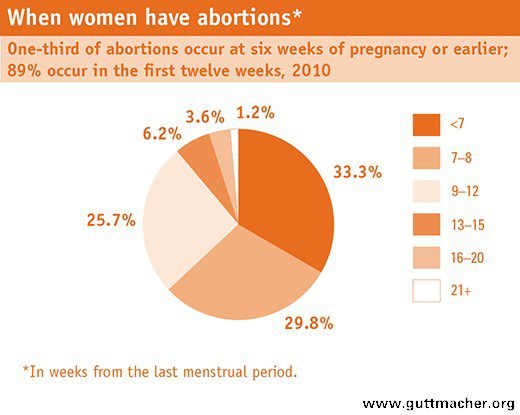
When people think of Christian fundamentalism they most often think of the fundamentalism found in Evangelicalism and the Independent Fundamentalist Baptist (IFB) church movement. However, as the following story will show, fundamentalism is alive and well in the Roman Catholic church too.
Melanie Pritchard, Founder of Vera Bella Catholic Girls’ Formation Program and the Executive Director of the Foundation for Life and Love, wrote an article about why she does not let her four-year-old daughter wear spaghetti straps (link no longer active):
My four-year-old daughter Ella received a doll from a relative for Christmas that was wearing a fluffy pink skirt and a spaghetti strap tank-top covered by a sweater. To my daughter’s wild surprise, she also received the same outfit as her doll, in her own size. She put on her new outfit immediately to match her doll. I call them “the twinsy-bops,” since my daughter proceeded to try to wear the same outfit as her doll for the few days following Christmas.
Although I love the doll’s and my daughter’s outfits in their completion, I don’t allow my daughter or her dolls to wear spaghetti straps without something covering the tank-top. Some may think I go overboard or even call me a prude, but I am parenting with an advantage. I have inside knowledge of the working relationships between parents and their teenage daughters. Since I have been speaking to teenagers and their parents for the past 15 years, I have gained an extensive knowledge of the kind of drop-down-drag-out battles parents have with their teenage girls and their wardrobes.
One of those battles is over spaghetti strap tank-tops being worn without something else covering them. Now, I’ll admit, when my four-year-old attempts to wear the new spaghetti strap tank-top, she doesn’t look immodest. She still manages to look innocent and dignified. So, why won’t I allow my daughter to begin wearing these types of tank-tops at age four? Because the battle she and I will inevitably have over tank tops will be a lot easier to win if the standard never changes. The same rings true for two-piece bathing suits and other clothes that will not protect her dignity and mystery when she is at a more womanly stage in her life…
For those of us raised in the IFB and Evangelical church, Pritchard’s argument is quite familiar. Better to win the battle over clothing when a child is young and impressionable than when she is a teenager. Better to teach her “modesty” at age four than try to get her to dress “modestly” at age fifteen.
Pritchard recounts a story about her daughter that she thinks illustrates that her daughter is starting to understand the importance of modesty and why she should not wear spaghetti straps:
A couple days later, we went to enjoy taco Tuesday at a locally owned restaurant in town. We were sitting at our table waiting for our food when Ella grabbed my arm and pulled me close to her. She was pointing to the hostess with the very womanly figure wearing a spaghetti strap tank-top that kept sliding up to reveal her stomach and was accentuating and revealing her large chest. Ella whispered in my ear, “Mom, her mystery isn’t protected. She is wearing a spaghetti-strap and it’s not modest.”
Ella saw it for herself. It clicked for my four-year-old. She began to have a small amount of judgment in her voice as she continued to talk about this woman. I explained gently, “Ella, we can’t judge her or talk about her behind her back. She may not know her beautiful mystery and why she should protect it. Instead, we should pray that God may reveal it to her, so she knows just how special she is.” Ella was satisfied with my answer and agreed to pray for her.
Later in the article Pritchard reveals the real reason she won’t let her daughter wear spaghetti straps. Some day, her daughter will be a teenager, and if she hasn’t learned to be modest she might dress immodestly and attract poor, helpless horn dog Catholic boys:
I meet many parents who have allowed their daughters to wear spaghetti-straps, tube tops, leggings as pants, two-piece swim suits, and other clothing when they were young when their figures hadn’t emerged, only to find out there comes a time when they become extremely uncomfortable with their beautiful, womanly, innocent, teenage daughters wearing them in public. Fathers are by far the ones who cringe the most when they speak to me. They know teen-age boys. Every father was a teenage boy once. They cringe at the way their daughters are dressing, but the fight is so big, they often back down and let their girls wear what they want.
As a parent of six children, I know the importance of teaching children to dress appropriately. However, there is a difference between appropriate and puritanical. Pritchard goes far beyond appropriate and teaches her daughter a way of thinking that will result in her thinking her now-womanly body is sinful and must be covered up lest poor, helpless men take sexual advantage of her.
Pritchard, with her silly objection to her daughter wearing a top with spaghetti straps (and tube tops, leggings as pants, two-piece swimsuits), is making sure her daughter will grow up to be a sexually repressed Catholic woman. Instead of teaching her daughter to dress appropriately, she is planting the seed of sexual repression.
Her ban of certain clothing will do little to help her daughter when she becomes a sexually aware woman. Silly talk about a woman’s “mystery” will not keep her daughter from desiring what is natural: sex. While we can certainly debate whether it is a good idea for teenagers to have sex, the fact of the matter is they do:
According to the US Centers for Disease Control and Prevention (CDC), in the year 2007, 35% of US high school students were currently sexually active and 47.8% of US high school students reported having had sexual intercourse. This percentage has decreased slightly since 1991.
Self-report surveys suggest that half of all 15- to 19-year-olds have had oral sex. That percentage rises to 70% by the time they turn 19, and equal numbers of boys and girls participate. Research indicating that oral sex is less risky to teens’ emotional and physical well being than vaginal sex has been advanced; researchers at the University of California do not believe this conclusion is warranted. They found that oral sex, as well as vaginal sex, was associated with negative consequences. Of adolescents engaging in oral sex only, girls were twice as likely as boys to report feeling bad about themselves and nearly three times as likely to feel used. Despite their behaviors, 90% of adolescents “agree that most young people have sex before they are really ready.”
The average age of first sexual intercourse in the United States is 17.0 for males and 17.3 for females, and this has been rising in recent years. The percentage of teens who are waiting longer to have sex has been increasing. For those teens who have had sex, 70% of girls and 56% of boys said that their first sexual experience was with a steady partner, while 16% of girls and 28% of boys report losing their virginity to someone they had just met or who was just a friend.
Pritchard belongs to a sect that is known for sexual repression and the denial of natural human sexuality. The Church also condemns masturbation and birth control. One would think if the Church wanted unmarried Catholics to remain sexually pure that they would encourage masturbation as an acceptable release of sexual tension. One would also think that the church would encourage Catholic women to use birth control since it would help eliminate the need for abortion. But they don’t. I wonder how different the discussion and rules would be if women were allowed to have a say in the teachings of the Church.
When it comes to human sexuality, the male-controlled Catholic Church is fighting a losing battle. In 2012, the Guttmacher Institute had this to say about Catholic women having sex and using birth control:
“Guttmacher’s analysis of data from the federal government’s National Survey of Family Growth found that the vast majority of American women of reproductive age (15–44) — including 99% of all sexually experienced women and 98% of those who identify themselves as Catholic — have used a method of contraception other than natural family planning at some point. Women may be classified as sexually experienced regardless of whether they are currently sexually active, using contraceptives, pregnant, trying to get pregnant or postpartum.
“By their early 20s, some 79% of never-married women — and 89% of never-married Catholic women — have had sex. (Presumably, all married women have done so.) In short, most American women (including Catholics) have had sex by their early 20s, and virtually all of them have used contraceptives other than natural family planning.
It is now known that the best way to combat unplanned teen pregnancy is to provide sex education and easy access to birth control. Just say no because God says so, is not a plan. Yet, Pritchard’s church wants to deny teens and unmarried women the means to keep from getting pregnant.
Knowing how the Catholic church views human sexuality helps to explain Pritchard’s puritanical obsession with her four-year-old daughter’s clothing. She doesn’t want her daughter to grow up to be one of those “easy” Catholic girls whom boys are fond of talking about.
Instead of teaching her daughter to embrace her sexuality and prepare her for life as a sexual being, she is teaching her that a woman’s body should be covered up so her “mystery” is not revealed. This is no different from the teaching of the IFB church, with its prohibitions against wearing any form of clothing that reveals the female shape and body. The reason? The teens and men of the church are pathetic, helpless creatures who are little more than dogs seeking bitches in heat.
Instead of teaching accountability and responsibility, religious zealots such as Pritchard teach repression and impotence. Sexually awake young women wearing spaghetti straps is not the problem. Any teen boy or man who can’t sexually control himself if he sees a woman wearing a top with spaghetti straps is pathetic. Men, regardless of their age, need to be responsible for their sexual behavior and the manner in which they treat women. Women should not be forced to manage not only their own sexuality but the sexuality of men who supposedly can’t help themselves. They are not the gatekeepers, the protectors of the “mystery.” Men need to own their sexuality and act appropriately (as the Catholic church needs to own its cover-up and protection of the real predators that roam the sanctuary and rectory: Catholic priests.
Lest readers think Pritchard is a lone fundamentalist Catholic, I leave you with the advice another fundamentalist Catholic woman, T.M. Gaouette, gives to sexually aware Catholic girls:
In a 2004 article titled “The Forgotten Virtue: Modesty In Dress,” author Monsignor Charles M. Mangan lays out a basic guide founded upon principles of modesty set by Pope Pius XII in 1957. These values are still valid today and I’ve found them to be very helpful in determining what’s modest and what’s not.
With Mangan’s help, I will offer specific guidelines on dressing modestly.
To dress modestly is to avoid deliberately causing sexual excitement in oneself or one’s neighbor (Mangan).
The objective of modesty is to refrain from wearing clothing that causes lustful thoughts, whether intentionally or unintentionally. When dressing modestly, Christian girls should avoid clothes that reveal, enhance or highlight certain body parts.
Bust: Avoid tight or see-through shirts or tops without appropriate undergarments, and tops with low plunging necklines that reveal a cleavage. If you have a large bust, then you should also stay away from spaghetti straps and strapless designs.
Thighs: When it comes to skirts, select those that are no shorter than above the knee. Make sure you account for how high the skirt rises when you sit. When it comes to shorts, opt for those that don’t expose too much of the thigh.
Back: Refrain from wearing backless shirts or dresses that plunge in the back. These styles are designed to look sexy.
Stomach: Shirts and tops should always cover the stomach.
Butt: Avoid tight skirts, shorts, dresses and pants that reveal the shape and curve of the buttocks. I also would avoid pants with words printed on the butt, since they are designed to cause the eyes to gaze at that area of your body.
I added “butt” to Mangan’s list because it often causes lustful thoughts in men when highlighted by tight shorts, pants, dresses and skirts.
There usually are no exceptions to the above rules in the case of everyday clothing. When it comes to athletic wear, make sure that your ensemble doesn’t look sexy.
Clothing fulfills three necessary requirements: hygiene, decency and adornment. These are ‘so deeply rooted in nature that they cannot be disregarded or contradicted without provoking hostility and prejudice’ (Mangan quoting Pope Pius XII).
In addition to these guidelines, I believe that, in some instances, modesty is subjective. One item of clothing may be immodest on one person, but modest on another. For example, spaghetti straps can look both modest and immodest, depending on the size of the person’s bust. However, modesty in this case can usually be attained by adding a cardigan or light jacket.
Bruce Gerencser, 68, lives in rural Northwest Ohio with his wife of 47 years. He and his wife have six grown children and sixteen grandchildren. Bruce pastored Evangelical churches for twenty-five years in Ohio, Texas, and Michigan. Bruce left the ministry in 2005, and in 2008 he left Christianity. Bruce is now a humanist and an atheist.
Your comments are welcome and appreciated. All first-time comments are moderated. Please read the commenting rules before commenting.
You can email Bruce via the Contact Form.




